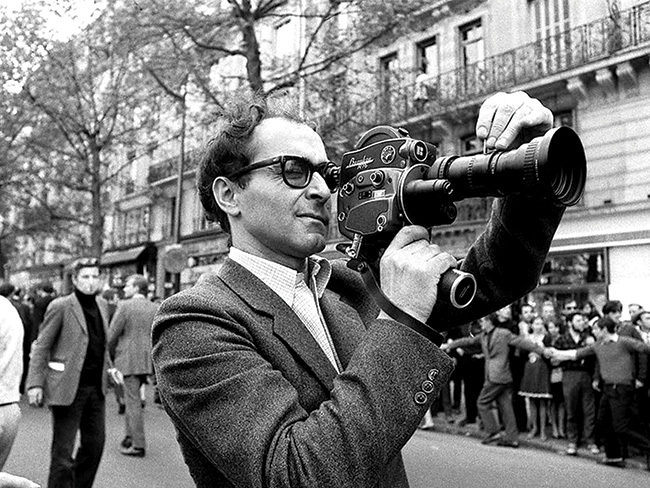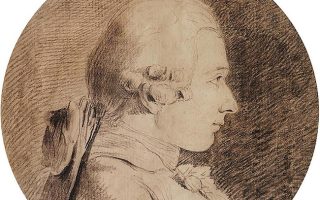Profile: Jean-Luc Godard

A look at the genius of the legendary Nouvelle Vague director, who has died aged 91.
A pioneer of the Nouvelle Vague, Jean-Luc Godard turned the world of cinema on its head by making movies into an art form just as worthy as the greatest paintings and sculptures. With tight budgets, endless last-minute script revisions and a raw, natural talent, his energy for cinema set 1960s France – and the world beyond – on fire.
Godard was born in Paris in 1930, and four years later, his father, a Swiss doctor, moved the family back to Switzerland where they spent most of the Second World War. Growing up, he hadn’t exactly been a movie buff, he later said, but his interest in cinema was sparked by reading the magazine, La Revue du Cinéma. In Paris at the age of 18, Godard attended Lycée Buffon, but he failed his baccalauréat and drifted for a while, not quite settling in France or Switzerland and seemingly at a loss as to what to do. One desperate attempt to find a purpose saw him enrol for a class in anthropology at the Sorbonne, though he never showed up – which turned out to be great news for movie lovers.
Godard’s first foray into the film business came in the 1950s in the form of writing for industry tome Cahiers du Cinéma in which he was scathing about the lack of imagination of conventional movie making. Soon, thanks to the film clubs of Paris, he was hanging out with the likes of François Truffaut, Éric Rohmer and Agnès Varda and in 1955, the critic turned camera man and made the short film, Une femme coquette. Numerous other projects with Truffaut and Rohmer followed, many of them abandoned through lack of funds. A trip to the Cannes Film Festival in 1959 sealed the deal, though: Godard was ready to make his first full-length feature.
In 1960, cinema history was made. Starring Jean-Paul Belmondo and Jean Seberg, À Bout de Souffle oozed stylish Nouvelle Vague disaffection while in turn paying homage to American film noir and having fun with the lexicon of cinematography. Jump cuts, natural lighting, and a script written on the go all conspired to create a film quite unlike any other before. His revolutionary approach did not go unnoticed and that same year, he was awarded the Jean Vigo Prize, which was designed to support future auteurs.
À Bout de Souffle kicked off Godard’s richest period: Vivre sa vie (1962), Contempt (1963), Bande à part (1964), Alphaville (1965), Pierrot le Fou (1965), Masculin Féminin (1966) and Weekend (1967). By the end of the decade, his position as one of the most important filmmakers of the 20th century was clear and a lifetime of dedication to all things cinematic followed. In 2010, Godard was awarded an honorary Oscar for his contribution to cinema. He died in Switzerland on September 13, 2022.
10-second CV
Name: Jean-Luc Godard
Born: December 3, 1930 in Paris to Odile and Paul Godard, a Swiss doctor.
Early career
He started as a critic for Cahiers du Cinema before getting behind the lens.
I’ve seen the name…
Godard made the world sit up and take note with the release of New Wave classic Breathless in 1960.
Greatest moment…
Weekend (1967) isn’t as well-known as À Bout de Souffle, but all self-respecting film snobs would surely agree, Weekend is the superior work. A bourgeois couple head off for a weekend visit to the in-laws and what follows is a nightmarish Surrealist black comedy. French New Wave at its purest.
Outside of work…
Godard has been married three times, first to actresses Anna Karina and Anne Wiazemsky, and finally to filmmaker Anne-Marie Miéville, to whom he was married for 44 years until his recent death.
C’est pas vrai!
Godard is related, via his mother, Odile (née Monod). to the Peruvian politician and former president Pedro Pablo Kuczynski, who is his cousin.
From France Today magazine
Lead photo credit : Jean-Luc Godard © Wikipedia
Share to: Facebook Twitter LinkedIn Email
More in French cinema, French film, Jean-Luc Godard
Leave a reply
Your email address will not be published. Required fields are marked *



